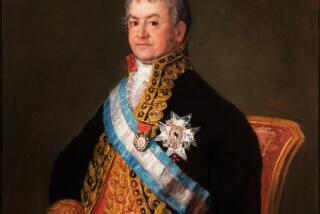Genetic testing: One family faces down Huntington’s disease
On Monday, Booster Shots reported on a new study in the journal Pediatrics showing that many parents would choose genetic testing for their kids if such screening might show the risks of heart disease, cancer and other disorders that the kids face. The study noted that many of the parents who said they were interested in testing believed their results would be reassuring.
But going through genetic testing can be an emotional roller coaster, even when the news is ultimately good, affecting people beyond the patient getting the test. Families, and their genes, are interconnected.
“People don’t understand how far-reaching this information is,” said Jim Nelson of Los Angeles. “It’s hard to own the information by yourself.”
Nelson knows first hand. His father and paternal grandmother both died of Huntington’s disease, a degenerative and fatal ailment of the brain that is passed down from parent to child. Children of people with Huntington’s disease have a 50% chance of carrying the gene themselves — and if they have the gene they will develop the disease, given time.
Of Nelson’s four siblings two were known to have the gene for Huntington’s; Nelson’s sister Debbie is already in the throes of the disease. At age 55, she must use a wheelchair and has trouble speaking and swallowing, among other difficulties. “It is all too horrible to even try to explain,” Nelson said. A third sibling died of cancer at 33 and was never tested.
Learning you will develop Huntington’s is devastating. For many years, Nelson and another sister, Laurie Dixon of Placerville, Calif., had decided that they wouldn’t get tested, waiting until signs of the disease showed up to find out if they were carriers. Recently both changed their minds. But it wasn’t easy, Nelson wrote in an email:
“Watching Huntington’s flow down through your family tree is devastating. You are always wondering who is going to have to bear this horrible burden next. The mothers in our family look at their children every day with great joy, as well as a fear that can sometimes be crippling. When you trip over something, especially when it’s your own two feet, a bolt of panic jolts you, as you question the possible onset of Huntington’s.”
“You want to know, and you don’t want to know,” he said.
Nelson eventually went to UCLA and was tested under an assumed name and ID, to avoid insurance complications. “Waiting for the results was “HELL!!!” he wrote. He felt guilty that he waited to tell his tell his sister, with whom he speaks often, that he’d had the test.
For her part, Dixon was sort of forced into examining her DNA: she decided to go through with testing when her son, David, who wanted to start a family, made a screening appointment of his own to find out if he carried the Huntington’s gene. If David was a carrier, he and his wife Brittany had decided, they would not have biological kids. But their right to know their own genetic destiny posed a problem for Dixon. She wasn’t sure she was ready to know about hers. “If he had [the gene], it would mean I absolutely had it,” she said.
Dixon asked her son to postpone his test so she could think it over, and then she secretly went to UCLA. In the end both she and Nelson got good news: They didn’t have the Huntington’s gene.
From Nelson: “When I went in for my follow up appointment, and found out I was ‘clean,’ I could not believe the flood of emotions. I was on the floor in tears. I couldn’t even leave the building, because I was shaking. I left the office, but had to go back and sit down. I couldn’t get in a car, so I had to walk around. I went to a neighborhood store, and the cashier asked me how I was doing. I said ‘fine,’ and started bawling my eyes out. She must have thought I just left the psych ward at UCLA. I tripped — and laughed for the first time, instead of going into a panic.
“To this day, I still cry when I think of some aspect of this disease. I am crying now.”
Dixon, who got her results some time later than Nelson, presented the good news to David and Brittany as a Christmas present. They are now planning to start a family -- one that won’t live under the shadow of Huntington’s disease.
RELATED:
Nelson and Dixon got their results from genetic counselor Michelle Fox at UCLA’s Medical Genetics Clinic. The Los Angeles Times reported on genetic counselors, including Fox, on Monday.
Booster Shots blog on the genetic testing study in the journal Pediatrics.
Nelson and Dixon’s brother-in-law Russ Eslick is keeping a blog about caring for his wife Debbie, who has Huntington’s disease.
On Monday the Los Angeles Times published two views on the merits and dangers of consumers having unfiltered access to their genetic data.







